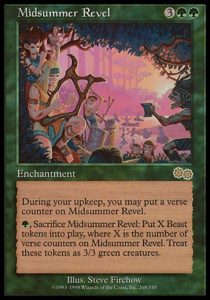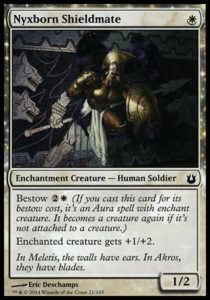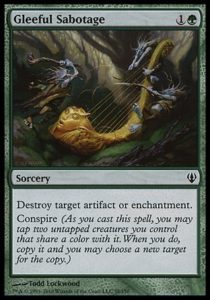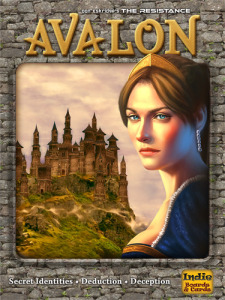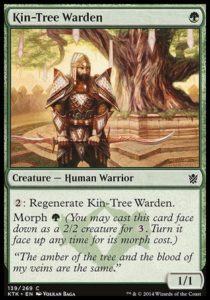Games create communities. These are (or ought to be) safe, inclusive, welcoming spaces where people are free to be themselves and free to play. Within these game-spaces are well-defined, egalitarian rules. People are free to lose themselves in play, to relax, to reveal themselves, to be vulnerable, and to form bonds with others.
At least, that’s my ideal of what games and gaming communities are. But does this ideal reflect reality? Do we really reveal ourselves and become vulnerable when we’re debating our P2P7? Not always, but I’d wager we do it more than we think. After all, when we’re intently focusing on the rules of Magic, we worry less about the ingrained social rules of adulthood—we get excited about discovering an ancient, giant warrior, we debate the motivations and ambitions of the unfathomable Eldrazi, we use an entirely different vocabulary, and we encounter people we might otherwise never meet. I’d further bet that few things can get the shy folks and introverts among us out of their shells among strangers quite like games do.
This past weekend, I attended the bachelor party of my close friend, Joel. It was a day-long affair, stretching from the early morning to the late night. Midway through the evening, I overheard two fellow party-goers discussing the character of a (not present) third party. They wondered how well they really knew the man, given that they’d only gamed together (they’d not too recently had a friend they’d gamed with heavily do a personality 180 and hurt everyone around him, so they had reason to be skeptical). I butted in with the story of how I first met said person.
I sat down for round two of the (Theros? Born of the Gods?) prerelease at Twenty Sided store. My opponent played irregularly, mostly on kitchen tables and at prereleases. His tricolor (Mardu, I think) deck was a bit greedy and fell to my blue-black tempo deck. After the match, with his permission, I rebuilt his deck as a more consistent, completely different, two color GU deck. At the end of the tournament, I checked up on him and he was proud to have gone undefeated since he faced me. I smiled, congratulated him, then made to walk away.
He tried to hand me two booster packs. I politely declined—I’d see more than enough packs across a season of Twenty Sided and TDL drafts. The packs were worth far more to him. He insisted, stating that he’d only won those packs because of my assistance. I told him that I didn’t want or need anything in return; helping people is part of the fun and experience of a prerelease. But he had to give me something in return for my help. He needed to return the favor.
That tells you something about a person. Not everything, of course, but something.
The bachelor partiers nodded when I completed this story—perhaps you can know a person through the fantasy world of games, and perhaps this guy wasn’t so bad.
Of course, we don’t always reveal our best sides through games. Anger is a relatively common emotion (ever seen someone go full tilt after losing a topdeck war?), and folks can say horrible things, out of spite or ignorance. And sometimes, just by playing to have fun, we demonstrate that our idea of fun might not be the nicest.
Last year, just before we started dating, Stephanie took me to Monday board game night at Amity Hall (which I now attend weekly). Our first game together was Avalon, an improved version, er, mod of The Resistance. It’s a social deduction game with two teams, asymmetrical in size and information.
I was a Loyal Servant of Arthur (the ‘good’ team) and fairly certain that Stephanie was a vile Minion of Morded (the ‘evil’ team). Good was losing horribly, and we’d reached a point where if Stephanie was evil, she’d have been able to end the game early and win immediately. She didn’t, so I had to assume that she was good and we had a chance of winning—if she was evil, she’d have won already. Turns out, she was evil all along, had figured out our leader (if evil finds Merlin, good loses; our Merlin had revealed himself, which is a horrible move), and was toying with us by prolonging our confusion and inevitable defeat. She was having fun… manipulating us while she held all the cards.
I called her Machiavelli for months.
There’s something more interesting at hand, however. Stephanie demonstrated creativity: she chose not to follow the self-evident rules of the game and to do something perfectly legal and highly unusual. She’s a Johnny (well, a Spike-Johnny). Which reminds me, the whole psychographic profile framework is a fantastic tool for describing peoples’ mindsets and inner selves, as revealed through play.
Last year, my family sojourned to Israel for a cousin’s wedding. My sister, mother, and I played quite a bit of Bananagrams with each other and our extended family. Some of us (particularly me and my sister) were very competitive, focusing on speed above all else. Our mother was a Johnny, who’d win sometimes but always have long, lovely words. The father of the groom resembled my mother (but his words were more Science than her English) and his sister shied away from anything resembling competition. Everyone played in a unique way, showing us something about how they related to us and each other.
Over the course of that trip, I’d learned more about my relatives by playing with them than I did by talking with them. They’d let their guards down, they didn’t worry about impressing or boring me, and we shared long silences.
I love games not only because they transport us to another, often better world, but because they can have lasting, positive experiences on this world. Games give us yet another language with which to communicate, express, and reveal ourselves.
I encourage you to share any stories you have of how games have either introduced you to someone, or a new facet of them, or allowed you to introduce some part of yourself to the world. And, as always, thanks for reading.
—Zachary Barash
Zachary Barash has been playing Magic on and off since 1994. He loves Limited and drafts every available format (including several that aren’t entirely meant to be drafted). He’s a proud Cube owner, improviser, and game designer. He has an obsession with Indian food that borders on being unhealthy.

